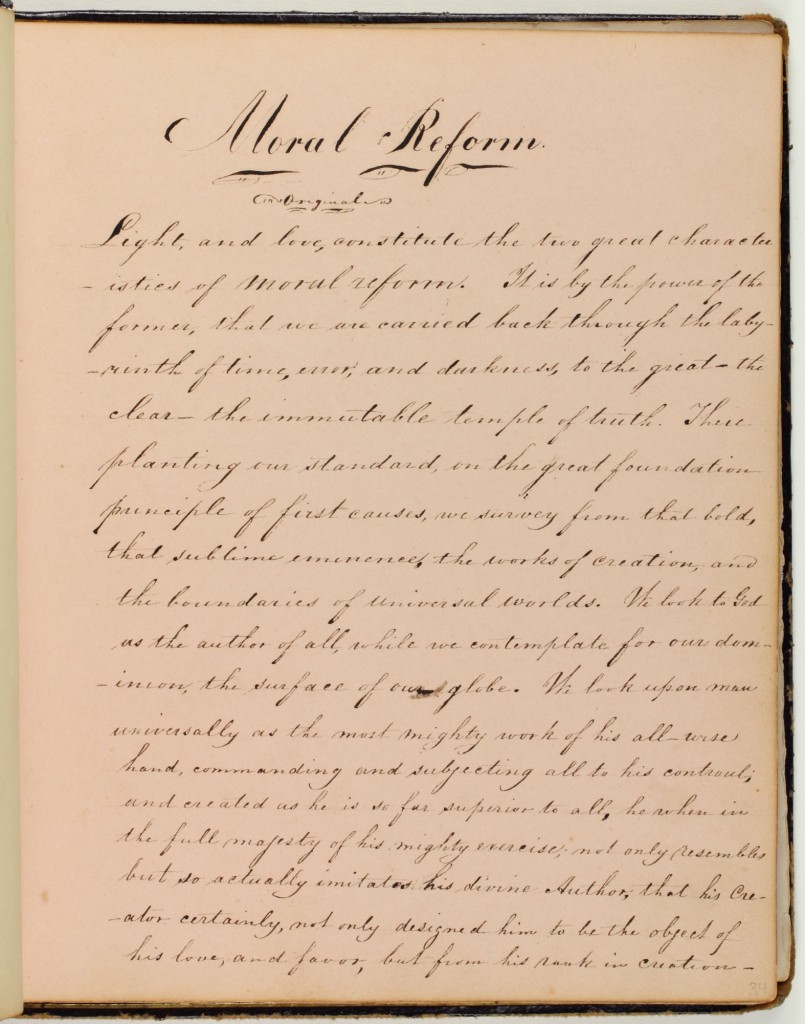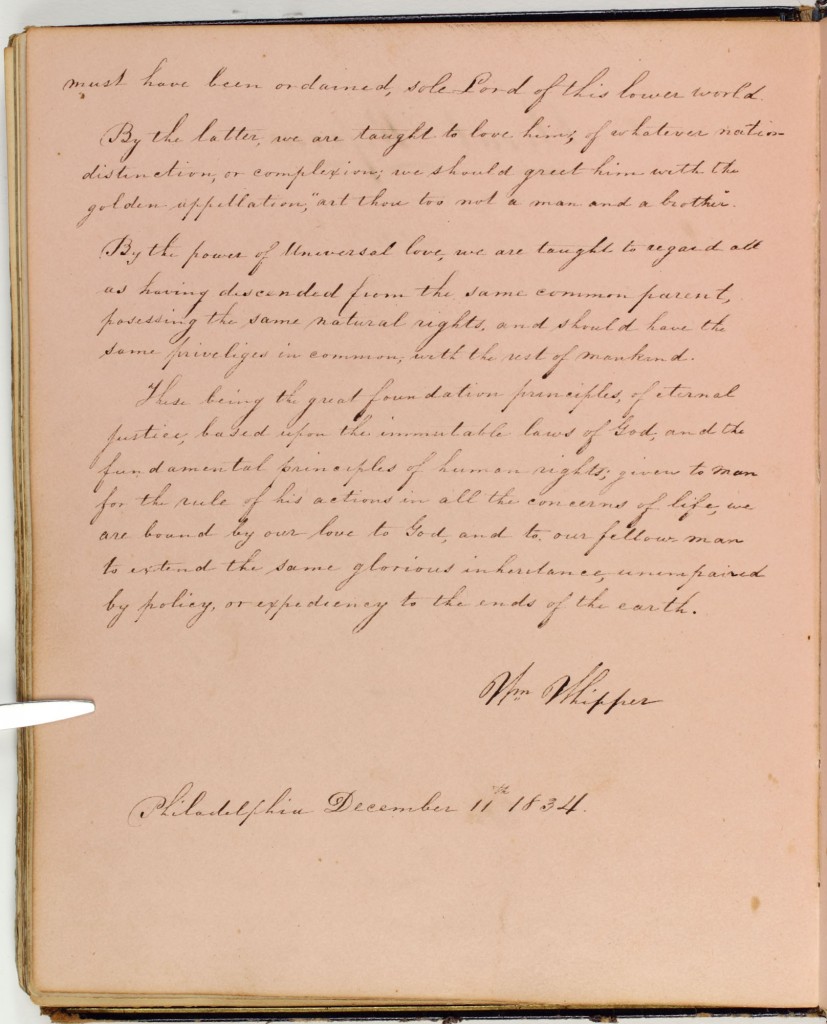Preface (3)
6|7|8|9|10|11-12|13|14|15|16|17|18|19|20|21|22|23|24|25|26|28|30|31|32|33
34|35|36|39|42|44|47|49|51|52|53|54|55|56|57|59|62| 63|64-68|70|73|75


Moral Reform
Original
Light, and love, constitute the two great characteristics of moral reform. It is by the power of the former, that we are carried back through the labyrinth of time, error and darkness, to the great—the clear—the immutable temple of truth. There planting our standard, on the great foundation principle of first causes, we survey from that bold, that sublime eminence, the works of creation, and the boundaries of universal worlds. We look to God as the author of all, while we contemplate for our dominion, the surface of our globe. We look upon man universally as the most mighty work of his all-wise hand, commanding and subjecting all to his controul [sic]; and created as he is so far superior to all, he when in the full majesty of his mighty exercise, not only resembles but so actually imitates his divine Author, that his creator certainly, not only designed him to be the object of his love, and favor, but from his rank in creation
[34 (verso)] must have been ordained, sole Lord of this lower world.
By the latter, we are taught to love him, of whatever nation distinction, or complexion; we should greet him with the golden appellation, “art thou too not a man and a brother”.
By the power of Universal love, we are taught to regard all as having descended from the same common parent, posessing [sic] the same natural rights, and should have the same priveliges [sic] in common, with the rest of mankind.
These being the great foundation principles, of eternal justice, based upon the immutable laws of God, and the fundamental principles of human rights; given to man for the rule of his actions in all the concerns of life, we are bound by our love to God, and to our fellow man to extend the same glorious inheritance, unimpaired by policy, or expediency to the ends of the earth.
Wm. Whipper
Philadelphia December 11th 1834.
African American abolitionist William Whipper (1804-1876) contributed this two-page commentary on moral reform to the album in Philadelphia in 1834, a year before he founded the American Moral Reform Society, an abolitionist organization that advocated nonviolence and increased educational opportunities among African Americans. The contribution’s strong language (e.g. “foundation,” “immutable,” “universal,” and “fundamental”) and its frequent use of collective pronouns (“we” and “our”) evoke a public oration.
A doctrine of his philosophy, Whipper’s essay operates in a mode of rational persuasion, urging the reader to confront ideological paradoxes between Christianity and the slavery system. “By the power of Universal love, we are taught to regard all as having descended from the same common parent, posessing [sic] the same natural rights … we are bound by our love to God, and to our fellow man to extend the same glorious inheritance, unimpaired by policy, or expediency …” Additionally, the essay flirts with the literary genre of romanticism in describing the process of converting to Christianity in terms of the sublime. “Light, and love, constitute the two great characteristics of moral reform. It is by the power of the former, that we are carried back through the labyrinth of time, error and darkness, to the great—the clear—the immutable temple of truth.”
